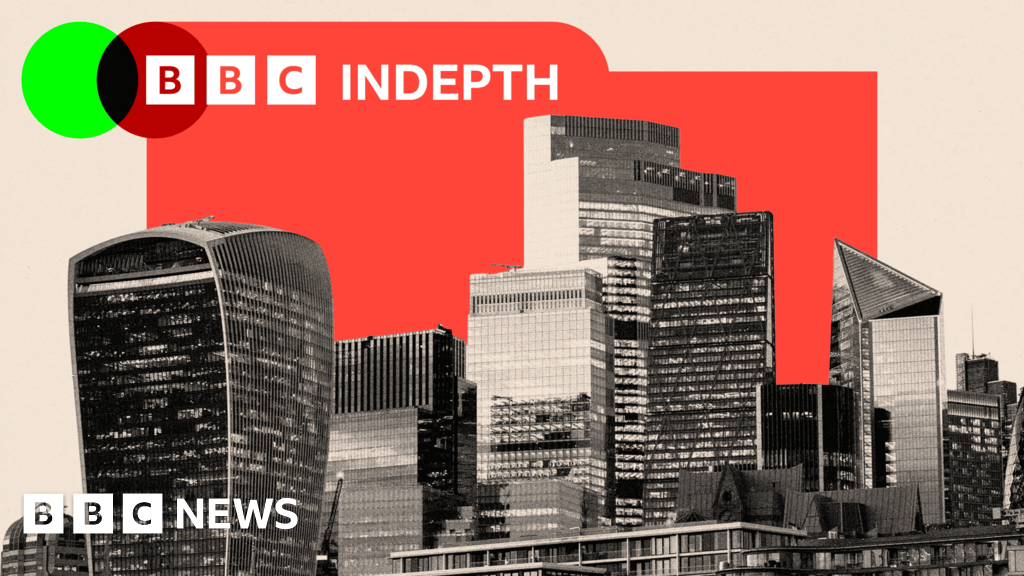“We need people doing applied research, working with companies, being mentors in companies, … [+]
getty
The more positive energy you put into the world, the more positive energy comes back to you.
Spend just a small amount of time with Eric Cornuel, President of the European Foundation for Management Development, EFMD and you immediately feel the positive charge. Perhaps it is no surprise that Eric started his career as an entrepreneur by setting up a hydroelectric power plant in France when he was still a student.
With an MBA from HEC Paris and a Doctorate in Strategy and Management, Cornuel has experienced first-hand the positive impact of business education. And since 2000 he has led the foundation dedicated to management development that was created in 1972 with 193 European members to an organization that now includes 977 institutional members from 90 countries around the world.
Under his leadership, EFMD operates the EQUIS accreditation of higher education institutions in management and business administration, and provides a forum for information, research, networking and debate on innovation and best practice in management development for a network of over 30,000 management professionals.
Meeting with Eric Cornuel at the EFMD Deans and Directors Conference in Madrid, he quickly switches from recording an interview on his thoughts about Why Culture Is The Backbone of a Company with IE Insights, the thought leadership publication published by IE University to our discussion together about the impact of management education for both individuals and society, and what he imagines the future of business education to look like.
I started by asking him what he is most proud of during the last 23 years at the head of EFMD.
“Well, I may surprise you. I could say accreditation, the success of CEIBS.” EFMD was a co-founder in 1994 alongside the Chinese government, European Union and Shanghai Jiao Tong University of in 1994 of the Shanghai-based China Europe International Business School (CEIBS) that ranks among the world’s best business schools.
“What has mattered the most for me has been to keep the spirit and the family feeling that people have when we interact together. And for me, this is unique. We laugh together, it’s wonderful. And I’m very proud of that because when an organization grows, very often you lose this proximity and qualitative sort of relations.”
“Keep your spontaneity and your kindness. At the end of the day, you’re always able to look at … [+]
EFMD
“Bear in mind that in 2000, we had 16 schools accredited by EQUIS. We had a little over 300 members. Of course, program accreditation didn’t exist or the impact assessment tool, BSIS and the rest. “We only had conferences and a team of 16 people at EFMD in Brussels. Then we grew, and we grew, and we grew and at the same time we kept that community spirit and I’m very proud of it. That’s my number one.”
As a student who set up a hydroelectric plant did he ever imagine the subsequent leadership role that you would have?
“No, not at all. You know I was born in Limoges, in provincial France. And my objectives were definitely not at all international at the time. But it’s thanks to my studies and, of course, the people I met that I eventually embraced this career.”
As you might expect, Eric Cornuel is a firm believer in the power of management education to transform lives and enable individuals to pursue their own hopes and dreams. “I think that management education has played this role for many years and in particular in Europe. I think when you see the trend, the evolution in terms of quality, in terms of personal development of students and participants, I believe our institutions have done a very, very good job. And we have witnessed that through accreditation.”
He recognizes that there is still a lot to do, “in particular to reinforce the impact of business school on stakeholders in general to optimize the career path that we can provide to students and participants and also how we can continue to collaborate and cooperate with them after graduation.”
As the Editor-in-Chief of BlueSky Thinking, which covers the expertise and research of faculty from many of the EFMD member schools, I’m interested to understand EFMD’s committed to reconnecting business school research with societal and industrial needs. For Cornuel, it is one of the critical elements for the profession.
“Academic research has gone too far in an esoteric direction. Widely recognized research is pretty much axiomatic, and hypothetical based on the principles of the German explorer and polymath Von Humboldt and his work goes back to 1804! So, there has been been a lot of water passing under the bridge since then.”
“What has mattered the most for me has been to keep the spirit and the family feeling that people … [+]
Etienne Maury
“Too much research is not warm enough. It is published years after all the corrections and modifications have taken place. I’m not saying we have to exclude this research, but we need to have a much broader scope for our intellectual contribution to society.
We need diversity and we need people doing very sophisticated scientific research. We also need people doing applied research, working with companies, being mentors in companies, participating in boards, writing articles in newspapers and business journals. This is the richness of academia. We cannot constrain our intellectual contribution to a very limited number of articles a year.”
The EFMD President does a quick calculation to illustrate his point. “How many reviews are normally considered by the top institutions – 50, 60, 70 three times a year. So that’s 150 to 200 publications. And if each of them is publishing 10 or 15 articles you have little more than 1,500 to 2,000 articles. Is this all that we produce? It’s not possible.”
Cornuel is keen to review that, and in particular the work of the Responsible Research in Business and Management. “We are very much involved with the RRBM and trying to instill the idea of much more heuristic research – research that makes a contribution to society and its stakeholders.
Much like the interview with IE Insights, all of these ideas are shared with the positive energy of a man who loves the role he has. So what advice does Cornuel have for the many hundreds of thousands of business school students about to embark on their own careers.
“Keep your spontaneity and your kindness,” he says, “even though you might take the occasional blow. At the end of the day, you’re always able to look at yourself in the mirror and move forward.”
Credit: Source link










